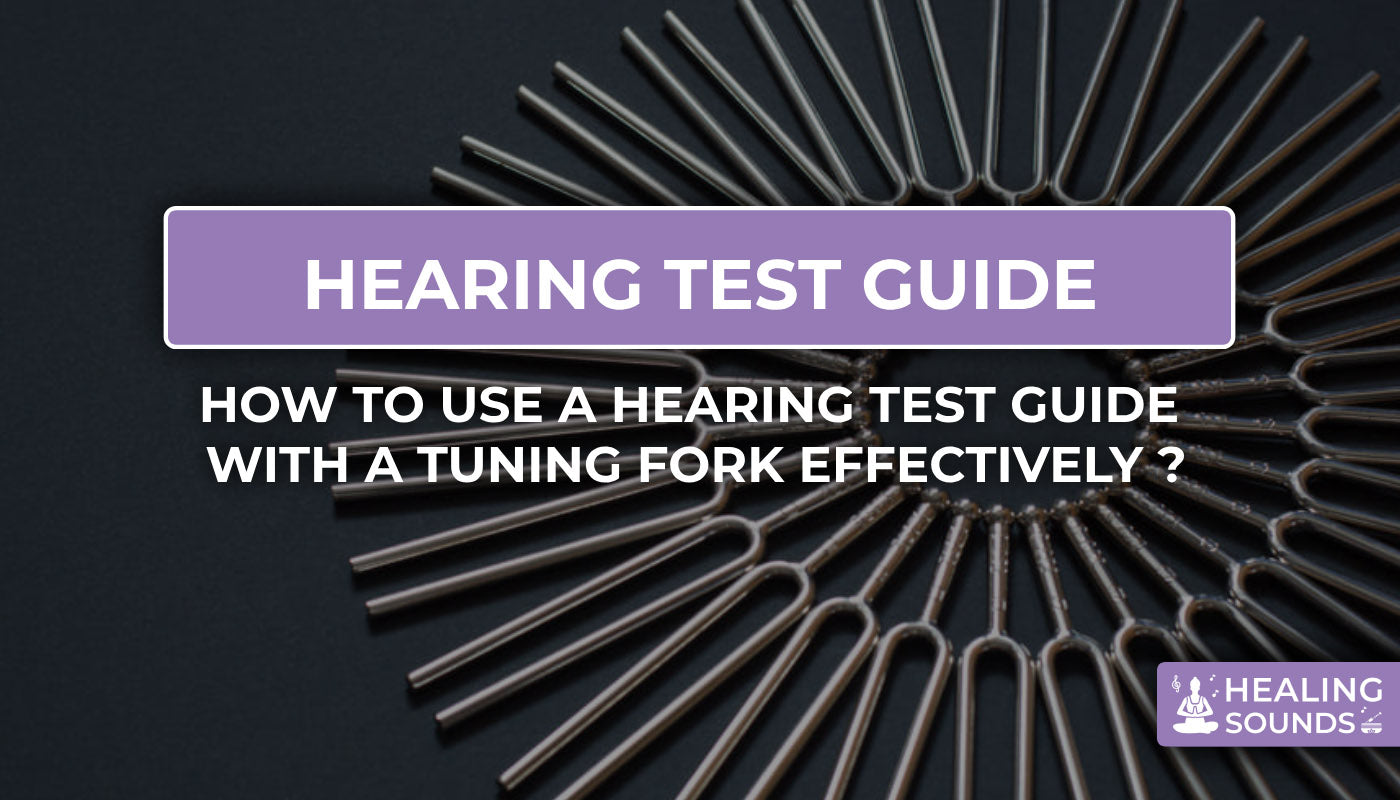Understanding your hearing health is a vital part of overall well-being. While modern audiometry offers detailed insights, the traditional tuning fork hearing test remains a valuable, non-invasive tool used by professionals and individuals alike. This guide explores how this simple instrument helps in auditory diagnostics, blending time-tested techniques with the principles of sound and vibration favored by those interested in holistic health and vibrational therapy.
Whether you're a practitioner exploring auditory assessment methods or someone curious about your own hearing, mastering the hearing test with tuning fork techniques can provide preliminary insights effectively and efficiently. Let's delve into how these tests work and why they matter.
What is a Tuning Fork Hearing Test?
A tuning fork hearing test is a screening method used to initially assess hearing function. It involves using a calibrated tuning fork, typically struck to produce a pure tone, which is then presented to the patient's ear or skull.
These tests primarily help differentiate between two main types of hearing loss: conductive (problems in the outer or middle ear) and sensorineural (issues in the inner ear or auditory nerve). They are valued for being a quick, portable, and non-invasive way to get initial hearing assessment data.
How Does a Tuning Fork Hearing Test Work?
The tests work by evaluating how sound is perceived through two primary pathways: air conduction and bone conduction.
- Air Conduction: This is the normal way we hear, where sound waves travel through the air in the ear canal to the eardrum and then through the middle ear ossicles to the inner ear.
- Bone Conduction: This involves sound vibrations being transmitted directly through the bones of the skull to the inner ear, bypassing the outer and middle ear.
By comparing how well a person hears the tuning fork's sound via these two pathways, specific patterns emerge that can indicate different types of hearing impairment. Common tuning fork test types include the Rinne and Weber tests.
Why is the 512 Hz Tuning Fork Commonly Used?
The 512 Hz tuning fork is the standard choice for many basic hearing assessments for several key reasons. This frequency sits comfortably within the range of human speech, making it clinically relevant.
Furthermore, a 512 Hz tone is less likely to be felt as vibration (unlike lower frequencies) and is less affected by ambient background noise compared to higher frequencies. This balance makes it ideal for reliable initial screening, particularly for the crucial Rinne test tuning fork application.

512 Hz Medical Tuning Fork Instrument
$39.90 $79.90
Our professional 512 Hz medical-grade tuning fork is ideal for performing accurate Rinne and Weber tests. Comes with a carry bag.
Explore 512 Hz ForkTypes of Tuning Fork Tests: Rinne and Weber Explained
The two cornerstone tests performed using tuning forks are the Rinne test and the Weber test. Understanding how to conduct and interpret them is key for effective tuning fork hearing assessment.
The Rinne Test
The Rinne test compares air conduction (AC) hearing with bone conduction (BC) hearing in one ear at a time.
How to perform it:
- Gently strike the 512 Hz tuning fork on an activator or your elbow.
- Place the vibrating base of the fork firmly on the mastoid process (the bony bump behind the ear). Ask the person to signal when they can no longer hear the sound.
- Once they signal, immediately move the still-vibrating tines about 1-2 cm from the opening of the ear canal. Ask if they can now hear the sound.
Interpretation:
- Normal Hearing (Positive Rinne): Sound is heard longer / louder through air conduction (AC > BC). The person will hear the fork again when moved to the ear canal.
- Conductive Hearing Loss (Negative Rinne): Sound is heard longer / louder through bone conduction (BC > AC or BC = AC). The person will not hear the fork again when moved to the ear canal.
For more detailed information on the procedure, authoritative resources like the StatPearls article on the Rinne Test from NCBI are valuable.

The Weber Test
The Weber test helps determine if hearing loss is unilateral (affecting one ear more than the other) and can suggest whether it's conductive or sensorineural.
How to perform it:
- Gently strike the 512 Hz tuning fork.
- Place the vibrating base firmly on the midline of the person's forehead, top of the head (vertex), or upper front teeth.
- Ask the person where they hear the sound: in the left ear, right ear, or equally in both/middle.
Interpretation:
- Normal Hearing: Sound is heard equally in both ears (midline sensation).
- Unilateral Conductive Hearing Loss: Sound lateralizes (is heard louder) in the ear with the conductive loss.
- Unilateral Sensorineural Hearing Loss: Sound lateralizes (is heard louder) in the ear with better hearing (the unaffected ear).
| Test | Placement | Compares/Detects | Primary Use |
|---|---|---|---|
| Rinne | Mastoid bone, then near ear canal | Air Conduction vs. Bone Conduction | Detecting Conductive Hearing Loss (in one ear) |
| Weber | Midline (forehead/vertex) | Sound Lateralization | Detecting Unilateral Loss (Conductive vs. Sensorineural) |
Understanding Test Results: Conductive vs. Sensorineural Hearing Loss
Tuning fork tests provide valuable clues but are not definitive diagnostic tools on their own.
- Conductive Hearing Loss: Occurs when sound cannot efficiently travel through the outer ear canal to the eardrum and the tiny bones (ossicles) of the middle ear. Examples include earwax blockage, fluid in the middle ear, or eardrum perforation. Rinne test is typically negative (BC > AC), and Weber test lateralizes to the affected ear.
- Sensorineural Hearing Loss: Results from damage to the inner ear (cochlea) or the auditory nerve pathways to the brain. Causes include ageing, noise exposure, or certain medical conditions. Rinne test is typically positive (AC > BC, but hearing may be reduced overall), and Weber test lateralizes to the *unaffected* ear.
It's crucial to understand the limitations. While these tests, particularly the hearing tuning fork test types like Rinne and Weber, can suggest the type and laterality of hearing loss, they cannot precisely diagnose sensorineural hearing loss or quantify the severity. Confirmation requires a full audiometric evaluation by a healthcare professional, as outlined by institutions like the Mayo Clinic.

Choosing the Right Tuning Forks for Assessment
Accuracy in a tuning fork hearing test depends heavily on the quality of the instrument. Look for forks made from durable materials like aluminum alloy, calibrated to precise frequencies. While 512 Hz is standard, having a set that includes other frequencies like 256 Hz can provide additional diagnostic information, as lower frequencies are sometimes better for bone conduction testing.
For comprehensive assessments or exploring frequencies beyond basic diagnostics, sets offering multiple calibrated forks are beneficial.
Essential Tuning Forks for Assessment & Therapy

256 Hz 320 Hz 384 Hz 512 Hz Tuning Fork Set
$59.90
$79.90
Includes the standard 512 Hz plus 256 Hz and others, offering versatility for detailed hearing assessment and foundational sound therapy. Learn more ➔
Explore a wide spectrum for advanced diagnostics or vibrational therapy, covering frequencies from deep 32 Hz up to 1000 Hz. Learn more ➔
Beyond Diagnostics: Tuning Forks in Sound Healing
While essential for preliminary hearing checks, tuning forks are also powerful tools in sound healing and vibrational therapy. Different frequencies are believed to resonate with various parts of the body and energy centers (chakras), promoting balance and relaxation.
For those drawn to the holistic potential, using diagnostic forks like the 512 Hz can be a gateway to exploring therapeutic frequencies for stress reduction, energy clearing, and promoting a sense of well-being after completing a hearing assessment.

Conclusion
Mastering the tuning fork hearing test provides a practical skill for preliminary auditory screening. Understanding the nuances of the Rinne test, Weber test, and the significance of the 512 Hz tuning fork empowers both professionals and individuals interested in auditory health.
These tests offer a valuable, non-invasive starting point for identifying potential hearing issues. While not replacing comprehensive audiometry, they are an accessible way to gain initial insights. Explore the precision-calibrated tuning forks at Healing Sounds to conduct reliable tests and discover the broader world of sound wellness.
Frequently Asked Questions about Tuning Fork Hearing Tests
A tuning fork hearing test is a basic screening method using a vibrating tuning fork to assess hearing. It helps differentiate between conductive hearing loss (outer/middle ear issues) and sensorineural hearing loss (inner ear/nerve issues) by comparing air and bone conduction pathways using tests like Rinne and Weber.
It works by producing a specific tone (e.g., 512 Hz) and testing how well the sound is heard through air conduction (near the ear canal) versus bone conduction (vibrations through the skull). Comparing these helps identify potential blockages (conductive loss) or nerve/inner ear issues (sensorineural loss).
The 512 Hz tuning fork is preferred because its frequency falls within the main range of human speech, is less influenced by background noise than higher frequencies, and less likely to be perceived primarily as vibration compared to lower frequencies. This makes it reliable for standard tests like the Rinne test.
The Rinne test is a specific tuning fork hearing test that compares the perception of sound transmitted by air conduction versus bone conduction in one ear. It helps identify conductive hearing loss. Normally, air conduction is perceived longer/louder than bone conduction (AC > BC).
Tuning forks can suggest sensorineural hearing loss (e.g., through Weber test lateralization to the better ear and a positive Rinne test), but they cannot definitively diagnose it or determine its severity. They serve as a screening tool, and suspected sensorineural loss requires confirmation with formal audiometry.



